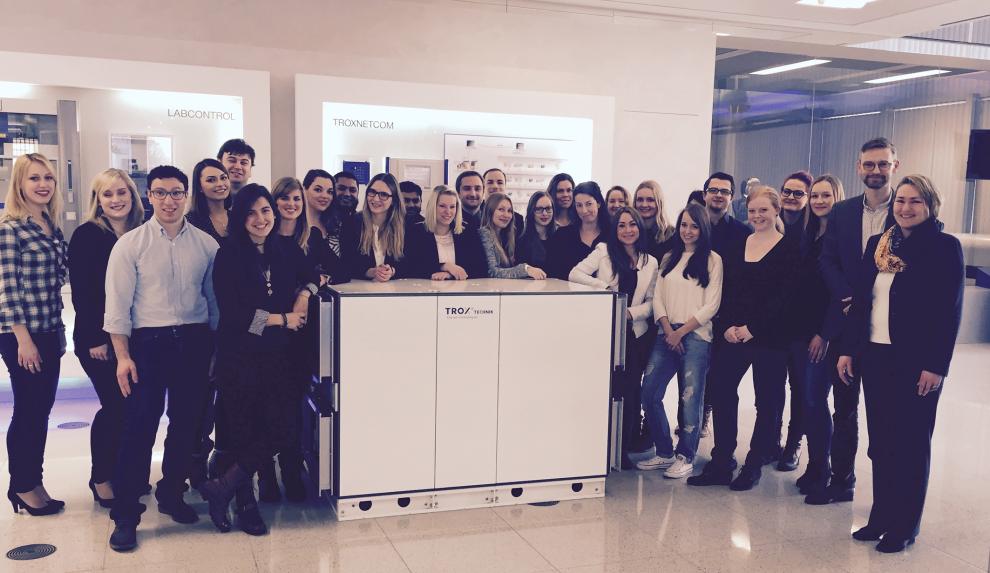Students investigate the impact of indoor climate on our well-being
Consumer research for regional company Trox GmbH
Master’s students from the International Management and Psychology M.A. programme of the Faculty of Communication and Environment at Rhine-Waal University of Applied Sciences recently concluded a collaborative research project on the personal, social and ecological factors that influence the well-being of people in private households.
Kleve/Kamp-Lintfort, 26 April 2016: Twenty-six first-year master’s students in the study programme International Management and Psychology M.A. at Rhine-Waal University of Applied Sciences recently completed a collaborative research project on the influence of indoor climates and climate control technology on well-being.
The students, who collaborated on the project with Trox GmbH, a regional producer of advanced climate control systems, analysed a range of factors that can affect an individual’s feeling of well-being in the context of a private household. Using psychological research methods, in-depth interviews were conducted with 80 regional homeowners and renters. Results showed that apart from personal preferences, social factors had a surprisingly large amount of influence on what people considered a “comfortable room temperature”.
“Finding the ‘best’ indoor climate for the home is rather challenging considering the amount of individuals involved. When a household becomes a social setting involving people of various generations, each with different preferences and ideas of comfort, finding a consensus becomes difficult. This is compounded by frequently recurring practices such as rapid ventilation of rooms, continuous adjustment of heating settings, and a constant coming and going of occupants, which illustrate how difficult it can be to produce indoor climate conditions pleasing to everyone,” explains Professor Dr Thomas Heun, Professor of Consumer Behaviour and Market Research at Rhine-Waal University of Applied Sciences.
The students’ collaborative project partner, Trox GmbH, has developed and manufactured climate control solutions for over 65 years. In that time, the company has learned what customers expect from good climate control systems: well-being, comfort and dependability. Trox GmbH has also learned first-hand how consumer behaviour can change and evolve: “In the past, car air conditioning, for example, did not enjoy widespread acceptance. Today, it’s hard to imagine a car without it. The evolving perceptions and attitudes of renters and homeowners provided the backdrop for this semester project,” said Christine Roßkothen, Marketing Director at Trox GmbH.
The students’ research showed that individual preferences are very culturally based. German test persons, for example, did not react to temperature increases by rushing to turn on their air conditioning. According to Professor Heun, many people in Germany have had negative experiences with air conditioning in public places or while on holiday. They also frequently associate exposure to low temperatures with an increased risk of getting a cold, further exacerbated by a general feeling that air conditioning systems are hard to control with precision.
“One insight that Trox GmbH will take away from this experiment is that many people still think split-system air conditioning is the only type of system available. Many people have a negative opinion on these types of systems because they are often associated with draughts and excessive, uncontrolled cooling. From a technical standpoint, these systems are radically different than the advanced HVAC systems Trox GmbH specialises in, which ensure a high level of thermal comfort – without draughts – and a high standard of air quality. Our close collaboration with Rhine-Waal University of Applied Sciences and use of psychological research methods encourage the growth and transfer of knowledge between the scientific community and the private sector,” noted Christine Roßkothen in summary.

